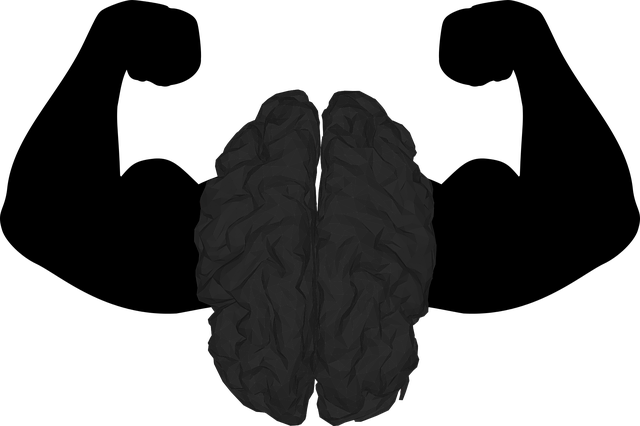Media representation greatly impacts public perception of mental health, especially within diverse communities like Hebrew-speaking adults. Accurate, positive portrayals can reduce stigma and encourage access to therapy services, while negative depictions can hinder care. Culturally sensitive mental wellness coaching programs and crisis intervention guidance are vital. Nuanced media representation promotes tailored support systems, improves mental health outcomes, and enhances accessibility to therapy for adults Hebrew speaking. To achieve this, media platforms should emphasize authenticity in depicting therapy techniques, collaborate with experts, and normalize therapeutic concepts through diverse narratives. Hebrew language media serves as a powerful tool to address mental health concerns within the Jewish community, promoting emotional well-being and inspiring help-seeking behaviors.
In today’s media landscape, accurate representation of mental illness is crucial for fostering understanding among Hebrew-speaking adults. This article delves into the profound impact of media on mental health awareness and explores effective strategies to enhance positive portrayals of therapy. We focus on empowering communities through accurate and supportive mental illness depictions in Hebrew language content, specifically tailored to meet the needs of this demographic. By challenging stereotypes, we strive to promote accessibility to therapy for adults speaking Hebrew.
- Understanding the Impact of Media Representation on Mental Health Awareness Among Hebrew-Speaking Adults
- Exploring Effective Strategies to Enhance Positive Portrayals of Therapy in Media
- Empowering Communities Through Accurate and Supportive Mental Illness Media Depictions in Hebrew Language Content
Understanding the Impact of Media Representation on Mental Health Awareness Among Hebrew-Speaking Adults

Media representation plays a pivotal role in shaping public perception about mental health, especially within diverse communities such as Hebrew-speaking adults. Positive and accurate portrayal of individuals with mental illnesses can foster understanding and reduce stigma, encouraging those struggling to seek therapy for adults Hebrew speaking services. Conversely, negative or stereotypical media depictions can exacerbate existing barriers to care and perpetuate harmful beliefs.
For Hebrew-speaking adults, access to culturally sensitive mental wellness coaching programs and crisis intervention guidance is essential. By representing mental illness in a nuanced light, media can drive conversations around stress management and promote the development of support systems tailored to the specific needs and cultural contexts of this demographic. This, in turn, can lead to improved mental health outcomes and increased accessibility to appropriate therapy for adults Hebrew speaking.
Exploring Effective Strategies to Enhance Positive Portrayals of Therapy in Media

Media has a significant impact on shaping societal perceptions, and its representation of mental illness can either perpetuate stereotypes or foster understanding. To enhance positive portrayals of therapy, media platforms should prioritize authenticity in their narratives. This involves collaborating with mental health professionals to ensure accuracy in depicting therapeutic processes like conflict resolution techniques and emotional healing processes. By integrating these strategies into storylines, the media can demonstrate the effectiveness of therapy for adults speaking Hebrew or any other language, thereby normalizing the concept.
Additionally, focusing on the journey of individuals coping with mental health issues can be empowering. Portraying characters engaging in coping skills development and showcasing their progress towards recovery can offer viewers hope and inspire them to seek help. Such representations should be inclusive, addressing diverse cultural backgrounds, including Hebrew-speaking communities, to ensure a broader appeal and accessibility to those who may relate to these stories.
Empowering Communities Through Accurate and Supportive Mental Illness Media Depictions in Hebrew Language Content

Hebrew language media plays a significant role in shaping perceptions and providing support for individuals struggling with mental health issues within the Jewish community. Accurate and empathetic portrayals can empower Hebrew-speaking adults seeking therapy by reducing stigma, fostering understanding, and encouraging help-seeking behaviors. By integrating stories that reflect diverse experiences of mental illness, these platforms can offer valuable insights into effective coping mechanisms and conflict resolution techniques.
Media content rich in self-awareness exercises and depression prevention strategies has the potential to reach a wide audience, especially those who may be hesitant to seek professional help. Through compelling narratives, community dialogues, and expert interviews, Hebrew media can normalize conversations around mental wellness, inspiring individuals to prioritize their emotional well-being. This, in turn, can lead to more people exploring therapy as a valid and supportive path towards healing and personal growth.
Media representation plays a pivotal role in shaping public perception of mental health, especially within Hebrew-speaking communities. By promoting accurate and positive portrayals of therapy, we can foster greater understanding and reduce stigma surrounding mental illness. Empowering individuals through accessible Hebrew language media content that depicts supportive environments is essential to encouraging help-seeking behaviors among adults struggling with their mental well-being. Through implementing effective strategies, we can challenge negative stereotypes and create a more inclusive and supportive society for those seeking therapy and recovery in Hebrew-speaking regions.














